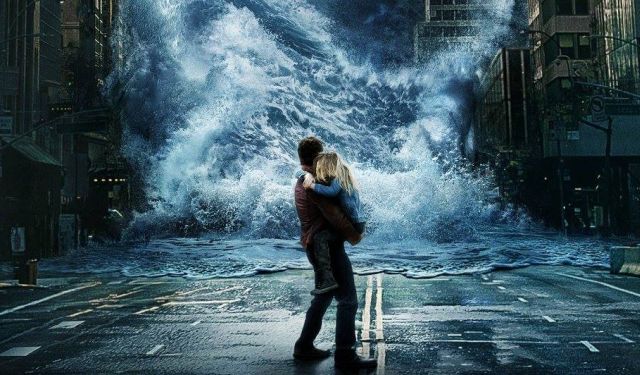Geostorm could have been mindless fun, but it fails to reach even those standards.
With Gerard Butler at the helm of this fantasy science fiction, it was set to be just as exciting and impassioned as previous Butler-starring films, such as 300. Any predictions, however, would have been hopelessly dashed considering that the most exciting part of the film was finally leaving after it had dragged on for almost two hours. Certainly, with a contrived title like Geostorm, it wasn’t anticipated to be the most intellectual film of the decade, but it did inspire a certain promise that the CGI of an almost supernatural storm would be awe-inspiring (it wasn’t – it was awful). Rather, it couldn’t detract from the banal and frankly boring plotline. With a budget of 120 million dollars, it seems strange that the entire film was a washout of incredible proportions.
Butler’s performance is perhaps best described as ‘moist’ – not only uncomfortable to hear and even look at, but limp and saturated with tediousness. Any fleeting interest in the potential annihilation of the world dimmed in between the dullness of everything else. The only thing that could possibly make the film any worse would have been if it had been longer.Most of the audience would likely have preferred earth to just be destroyed if it meant that they could escape the theatre half an hour sooner.
The plot is also deceptively simple: after natural disasters threaten the planet a satellite system is developed to control climate change. Shockingly, this master plan goes awry and begins to attack earth instead. An aspect that should have perhaps drawn attention to the issue of global warming, was drowned out in favour of a ridiculous script and more screen time dedicated to an absurd romantic subplot featuring the protagonist Jake’s brother.
All in all, the world would be better off destroyed by tsunamis, blizzards and volcanic eruptions than experience regular cinema releases like this monstrosity.
Stephanie Bennett
(Image courtesy of Bleeding Cool)

